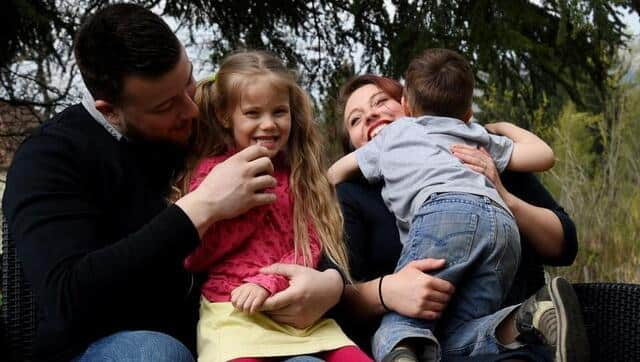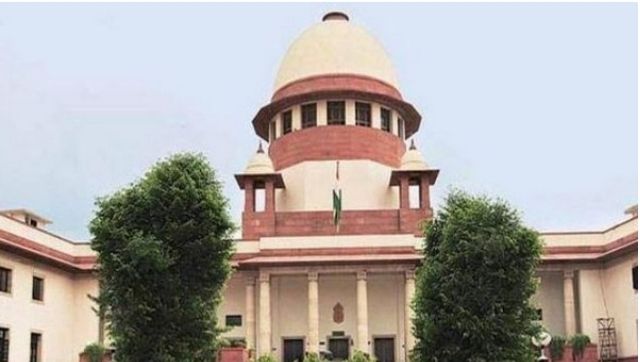In a recent divorce proceeding before the Supreme Court (Himanshu Chordia v. Arushi Jain), it was yet again reiterated that a child needs the love and care of both the parents to be happy. The Supreme Court’s comments show concern for the child. In a family law language, this judicial behaviour can be well captured in the Latin phrase, parents patri, which means that the court assumes the role of the parent of the child in divorce and custody battles. The assumption of this role by the court is important because parents assume the position of adversaries in such legal battles and none of them can be said to be representing the true interests of the child. Their only motive in such situations is to win their child from the contesting spouse while the interests of the child take a back seat. Even in the case at hand, the parents were fighting for the custody of the child, where each of them were representing their own selves and not the child. As much as the court is trusted with parental responsibilities in such situations, the real question is: Is the court competent to second guess the best interest of the child? A much easier method of ascertaining the best interest of the child would be to give some agency and autonomy to the child in the legal proceedings. They also deserve a say because they bear the maximum brunt of such family disputes. Their education, physical and psychological growth and mental peace get impacted. A lot of children blame themselves for the separation. There have also been reported instances of hypermaturity where children try to act more mature than their age in order to stabilise the environment at home. The trauma of parental separations can hinder the overall development of the child. In such a situation, the least that can be done is to ensure that the child gets some agency in deciding who their custodian would be, post the separation. [caption id=“attachment_10546991” align=“alignnone” width=“640”]  Caring for the child. ANI[/caption] Article 12 of the Convention of the Rights of the Child provides that the child has the right to express his/her views regarding everything that affects him/her. This cannot happen unless the child is made an active participant in such proceedings. But the law does not do much to ensure this. How much agency does the law allow for? Section 17 of the Guardians and Wards Act provides for the parameters that the court ought to consider while deciding the guardianship of a child. These factors include age, sex and religion of the minor, the character and capacity of the proposed guardian, and his nearness of kin to the minor, the wishes, if any, of a deceased parent, and any existing or previous relations of the proposed guardian with the minor or his property. The provision further states that If a minor is old enough to form an intelligent preference, the court may consider that preference. This provision is an amalgamation of paternalism and liberalism, wherein the court is supposed to look at factors like age, sex, religion, etc, and take the best decision so as to benefit the child, as per what it feels is right. The court might sometimes look into what the child wants, as that is what Section 17 also calls for. However, the wishes of the child cannot be ascertained a lot of times because he/she is too young to express his/her wishes. This can also happen when one parent tries to influence the child against the other in order to cause a parental alienation syndrome. As per this syndrome, the parent who has the custody of the child tries to poison his/her brain against the other parent, thereby making the child more inclined towards staying with the parent who already has the custody. This primarily happens because the children don’t have the requisite understanding and knowledge of legal processes and the courtroom procedures are not very children friendly. Conventional morality in the law: Also, there is the problem of deep-seated conventional morality that continues to plague our laws. For instance, the Hindu Minority and Guardianship Act endorses the tender age doctrine that says that the child till the age of five is better off with the mother; she is the best person to look after a young child as she has “genuine love and affection” for the child. This was also held in the case of Bimla and others v. Anita and others. Another manifestation of a social bias can be seen in Section 6A of the Hindu Minority and Guardianship Act. The natural guardianship of the child rests with the father. It is only after the death of the father or when he has been declared unfit to be the natural guardian, the mother becomes the natural guardian. This provision, again, takes away agency from women and re-enforces gender roles. Due to these stereotypical statutory constraints on the court, the interest of the child is further ignored. Unaddressed questions in the law There is no statutory provision in India that deals with visitation rights. The courts have set all the standards, rules and regulations for the same. But in order to reduce the discretion and uncertainty that exists in this area, it is important to have a statute in place that deals with the same. [caption id=“attachment_10739411” align=“alignnone” width=“640”]  Representational image of a family. AFP[/caption] Moreover, the concept of joint guardianship is not well developed in India. In the case of KM Vinaya v. B Srinivas, the court gave joint guardianship to both the father and the mother. But even this concept has not been posited in any law. The 257th report of the Law Commission of India — “Reforms in Guardianship and Custody Laws in India” — also recommended the definition of joint custody to be introduced in the Guardianship and Wards Act. The concept of joint guardianship wherein the child would be under the custody of both parents for a given period of time during year, can secure the child’s their right to receive the affection of both the father and mother (Vikas Ahuja v. state NCT of Delhi) and needs to receive legislative recognition. But there have just been observations from various courts, including the one in the case at hand. There is no concrete legal provision to provide for the ground rules of the same. The way ahead To make sure that children get requisite representation in the courtroom processes, there is a need to have a guardian ad litum, which means the person who assumes the guardianship of the minor for the purposes of litigation. Such a person can represent the best interest of the child before the court. This concept has been rarely been materialised in India. However, it has fared well in the US courts and thus can go a long way in making the Indian legal system more child friendly. Further, there is a need to re-visit the archaic laws in order to bring them in line with changing times and social contexts. This is indispensable to uproot gender stereotypes and serve the child’s best interest in the truest sense. Lastly, there is a need to posit laws after consulting all the stakeholders to remove uncertainty and unpredictability in the area of custody and guardianship so that there is no room for arbitrariness. It is only then that the best interest of the child will be secured. The author is a fourth-year student at the National Law School of India University, Bangalore. Views expressed are personal. Read all the Latest News , Trending News , Cricket News , Bollywood News , India News and Entertainment News here. Follow us on Facebook, Twitter and Instagram.
There is a need to posit laws after consulting all the stakeholders to remove uncertainty and unpredictability in the area of custody and guardianship so that there is no room for arbitrariness. It is only then that the best interest of the child will be secured
Advertisement
End of Article


)

)
)
)
)
)
)
)
)



